

Honey Maple Farm started in the Spring of 2014 with six 8 week old chicks and a desire to start producing healthy, sustainable food for our family. Little did we know but one of those chicks would grow into a Rooster and over the next two years those six chicks turned into 40. We started selling eggs to a few friends and neighbors and could brag about the deep orange yolks in the eggs from our backyard free ranging flocks. Two years later we purchased our first bees beginning one of the most incredible journeys imaginable.
For anyone who understands chicken math, where your flock has a tendency to continually grow larger whether chicks are hatched or bought, apiaries also have a natural tendency to grow in size over time. Our second year we purchased 4 more hives and through splitting and swarming ended up finishing the year with twice as many. Unlike wasps and other social insects, bees overwinter as a colony and Spring is a critical test of survival as honey stores begin to run low. Anxiously awaiting the first signs of pollen and nectar to get them through, we began to notice our little farm was inundated with Red Maples, one of the first plants to bloom each year.
Realizing the untapped (pun intended) potential of this forest, we began researching Maple Syrup production and in early Spring of 2018 setup 12 taps on 10 trees. Lacking the expensive evaporators used by commercial maple syrup farms, we built a block fire pit and setup 4 deep serving pans to boil the water out of the sap, finishing the process in our kitchen. We made enough syrup to share with friends and supply our family for about 6 months but began planning for a bigger harvest over the following years.
In 2019 we began selling honey and locally raised Honey Bee Queens. Our bees are foraging and producing honey in Moseley, central Powhatan near the village, and northern Powhatan near the State Farm. We offer pollination services to farms, swarm capture and removal, and began selling Nucleus colonies from our over-wintered bees in the Spring of 2020. We love to talk about sustainable farming (especially bees) and look forward to sharing some of the sweet rewards of our labor with the community.
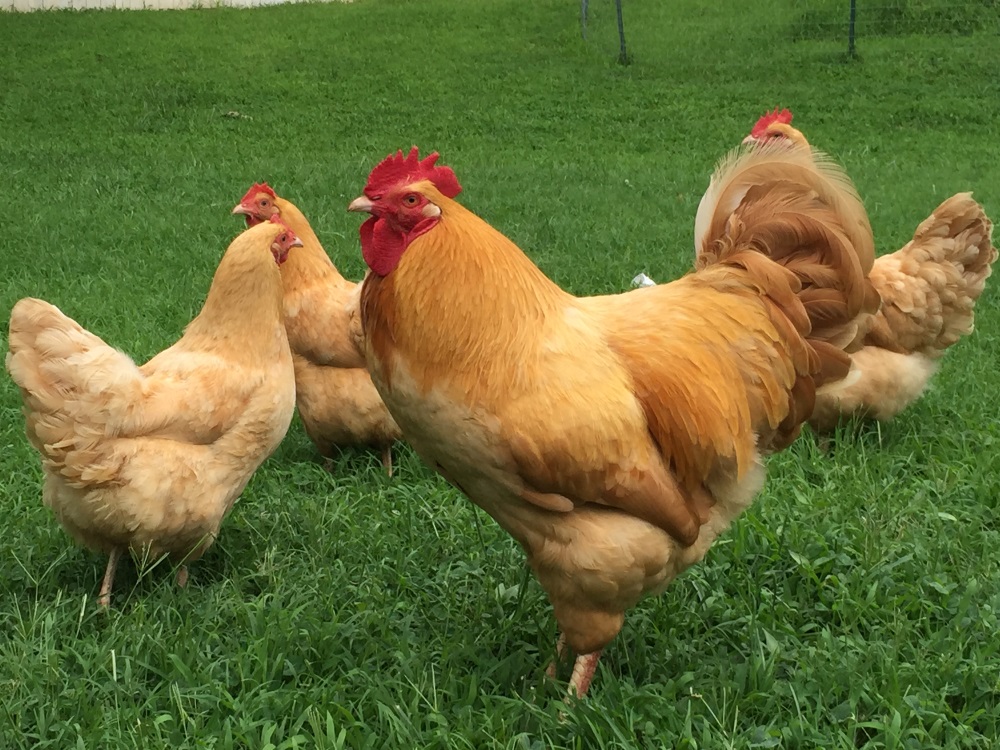
Our accidental rooster, Henry, with a few of his hens.
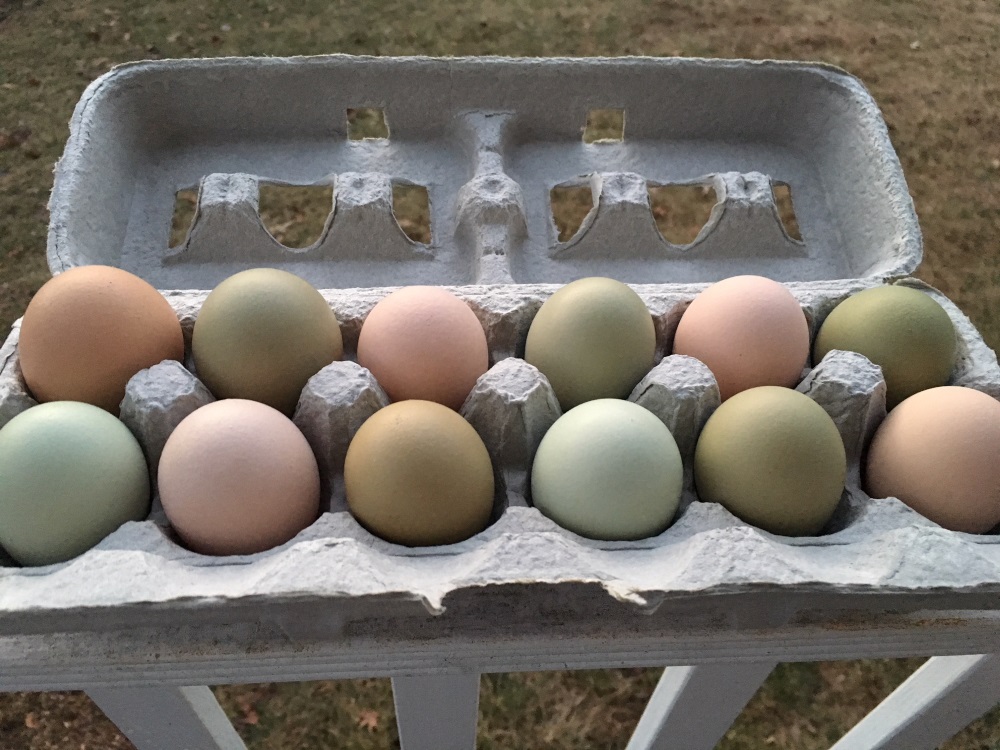
Our hens lay a rainbow of colors from Brown to Green.
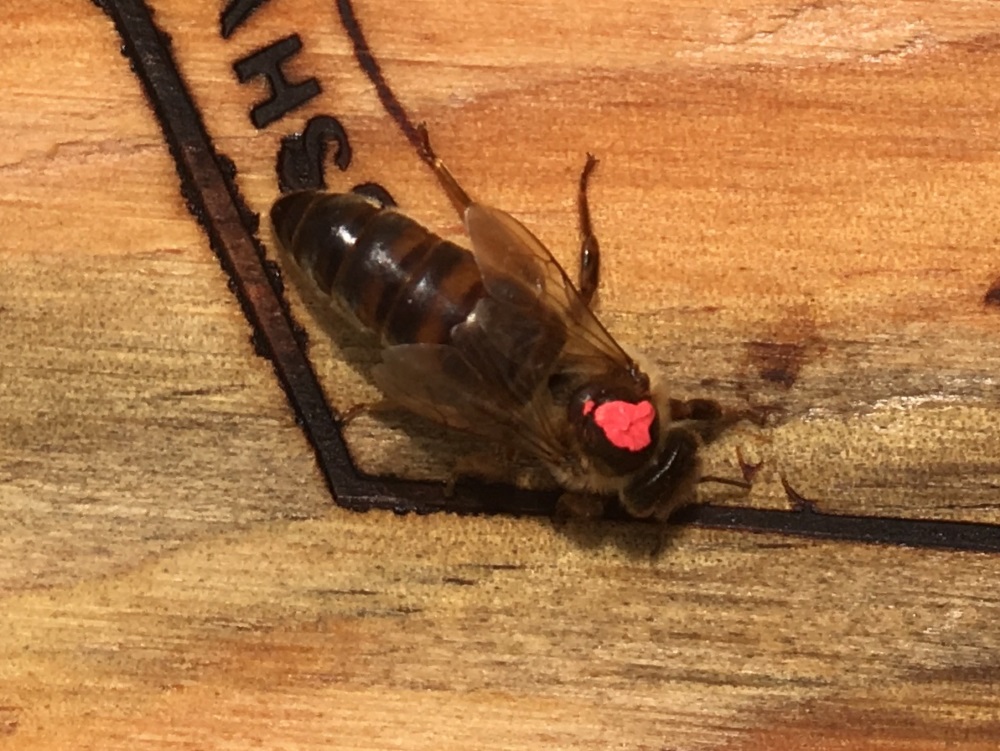
One of the queens raised in our apiary, marked red for 2018.
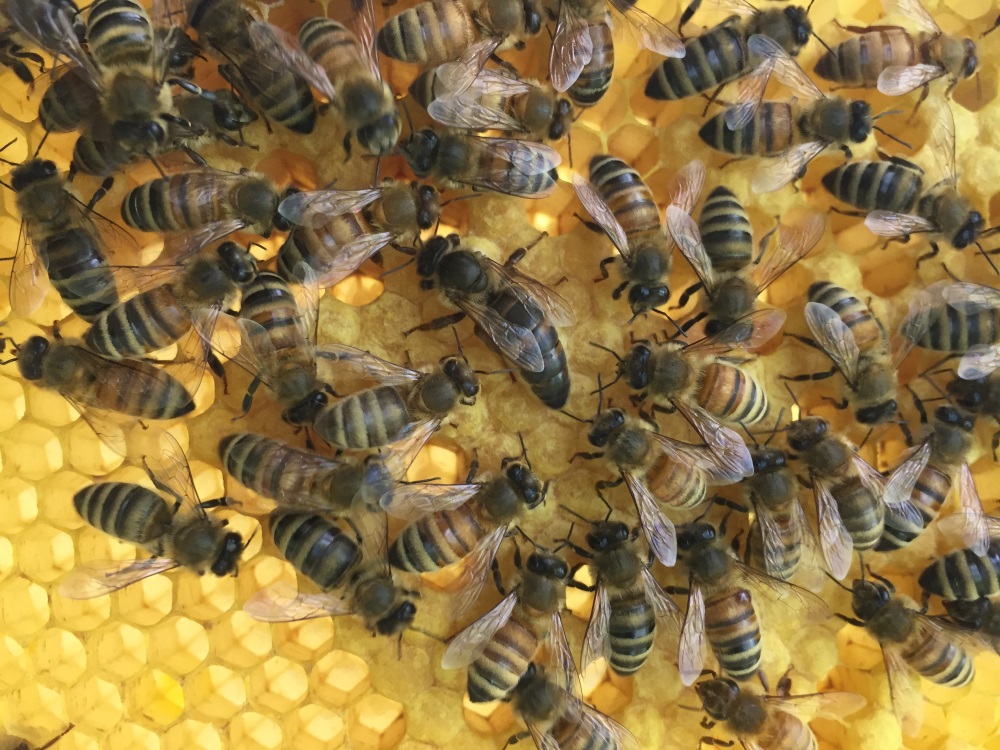
New bees wax is a very light (almost white) yellow and darkens over time.
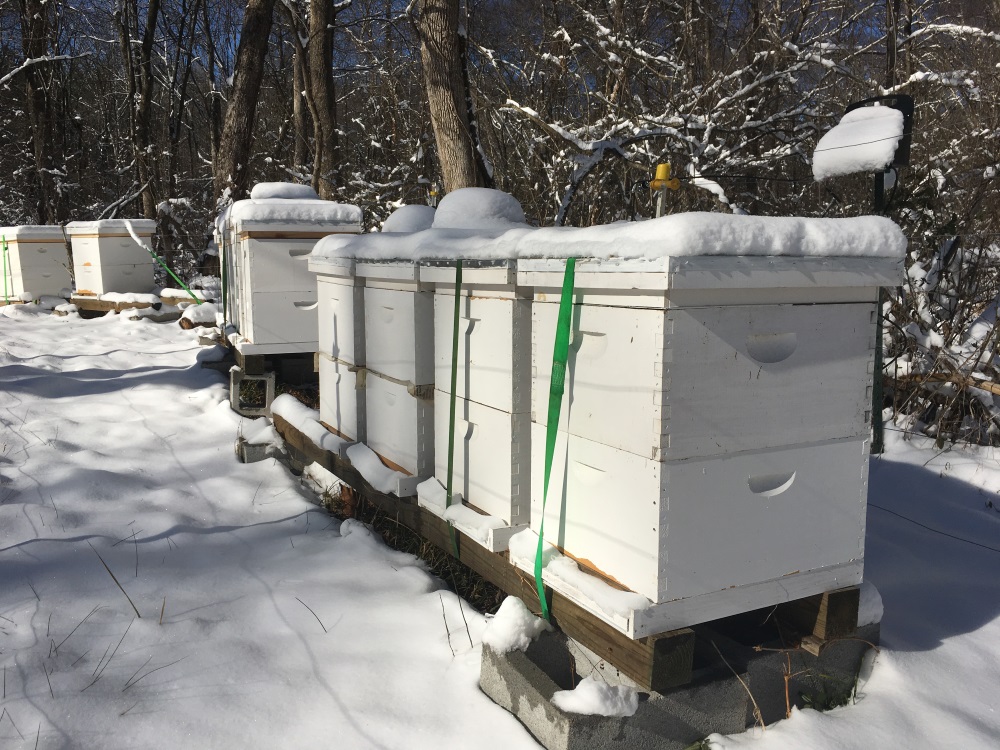
Honey bees overwinter as a colony which is why they produce and store so much honey throughout the year.
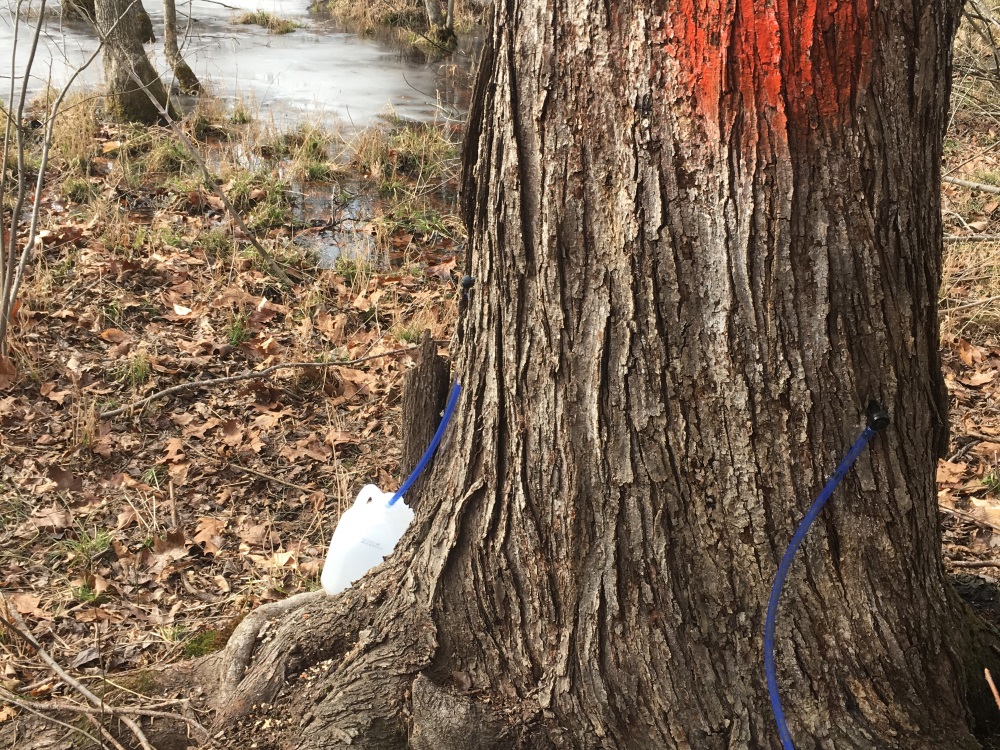
Sap is collected in Spring when the days are warming up but overnight temperatures are still below freezing.
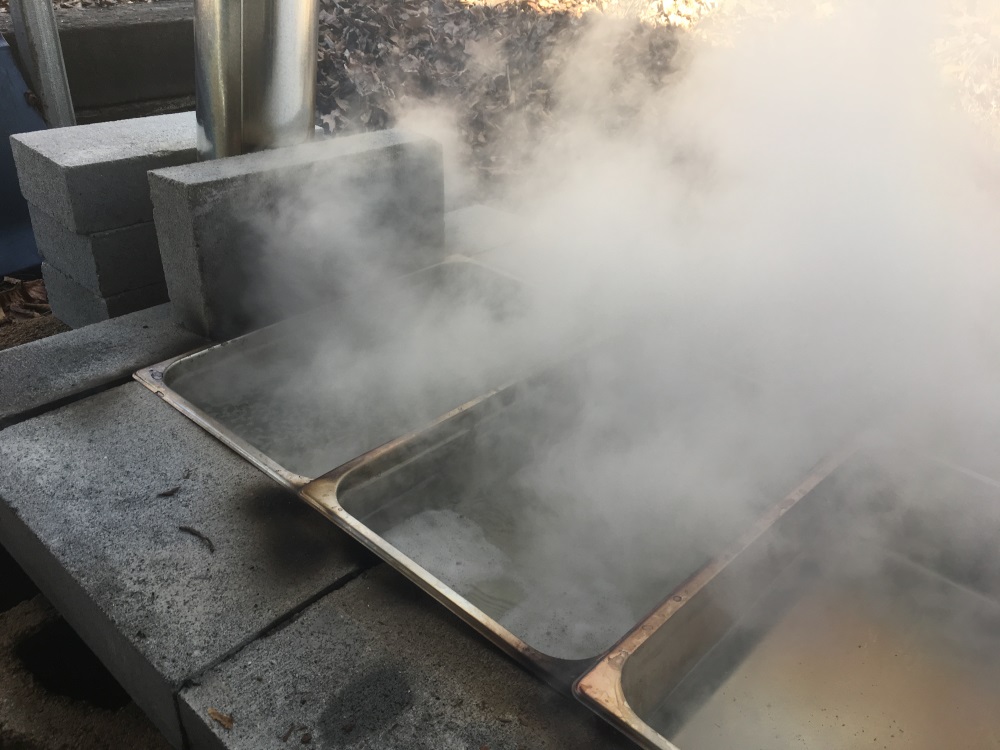
It takes 40-50 gallons of sap from a Red Maple to make 1 gallon of syrup.
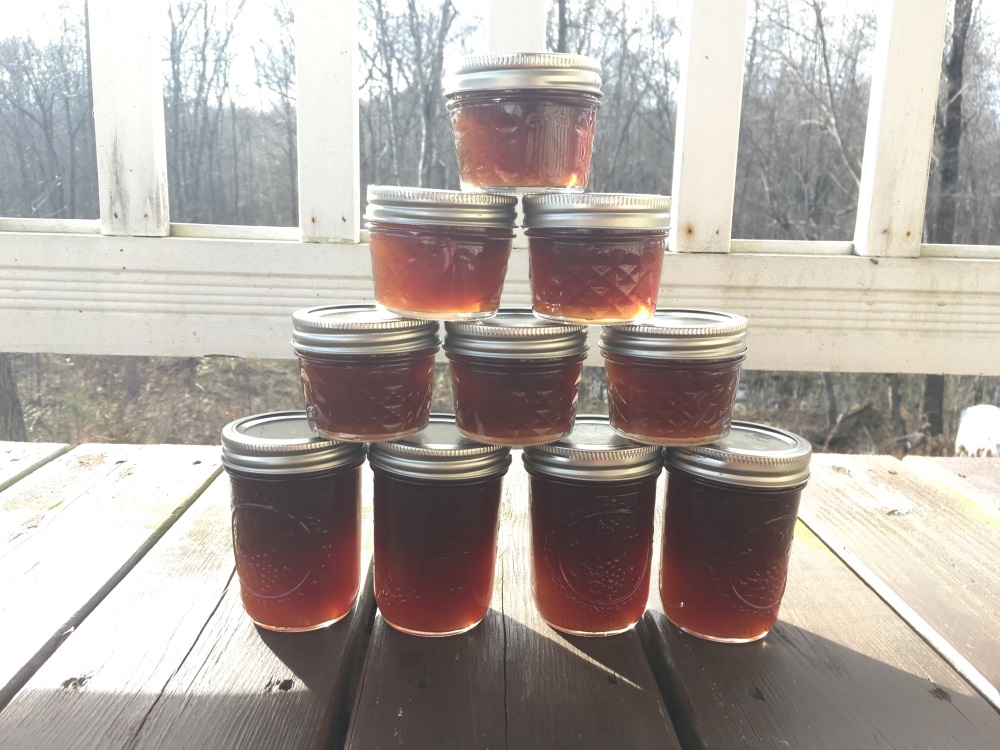
Finished syrup canned into jars to preserve it for the year.
Wildflower Honey is back in stock following our 2020 harvest in early June. Click the order button below to place an order online or give us a call to arrange a pickup!

Honeybees may from time to time form a swarm, a natural mechanism for bees to proliferate by splitting one hive into two or more. While a swarm is generally very docile and harmless, they can be intimidating to those unaccustomed to the sight. If you spot a cluster of bees on a tree branch, fence post, or other area of your property, we would be happy to remove it for you. By allowing us to intervene, these bees will be given the greatest chance of becoming a strong and successful new colony.
We'll remove swarms free of charge in the Greater Richmond area including Powhatan, Amelia, Chesterfield, Goochland, and Henrico - just give us a call or send an email with the swarm location. We'll need to know the approximate size of the cluster (football, basketball, etc), how high they are, and if possible send along a picture so we can bring the right tools for the job.
This video is one of our hives swarming while we were onsite performing inspections. We were lucky enough to not only be there to get them into a new hive but also to film the swarm in action!